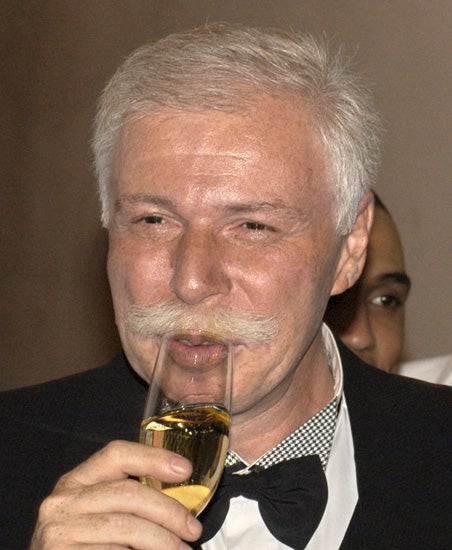Georgian billionaire declared 'enemy of the state' is found dead in Surrey exile

Badri Patarkatsishvili, an exiled billionaire considered an "enemy of the state" in his native Georgia, has died in his Surrey mansion of a suspected heart attack, two months after accusing Georgian authorities of plotting his murder.
Surrey police said they were treating the death as "suspicious" and ordered a post-mortem examination. Mr Patarkatsishvili, who challenged the Georgian President Mikhail Saakashvili in last month's presidential election, was based in Britain after having his assets frozen in Georgia, where he faced charges of attempting to mount a coup against the president.
It is the second time in just over a year that British police have been brought in to investigate the death of a man with links to leading Russian dissidents in London, following the murder of the former KGB security agent Alexander Litvinenko, who died of radiation poisoning in a London hospital. Mr Patarkatsishvili, a 52-year old television mogul who owned the independent station Imedi TV in Georgia, was a long-time associate of Boris Berezovsky, the former employer of Mr Litvinenko. In another quirk of tangled destinies, Mr Patarkatsishvili once employed Andrei Lugovoi, the former KGB operative wanted by Britain over Mr Litvinenko's murder.
Mr Berezovsky said that the Georgian tycoon – said to be worth £6bn – had complained about his heart when the two men met on Tuesday. Police said he fell ill on Tuesday evening while entertaining family and friends at his mansion in Leatherhead. Mr Berezovsky said yesterday: "The death of Badri Patarkatsishvili is a terrible tragedy. I have lost my closest friend. This is a huge loss for all of his family and friends. I shall make no further comment on the circumstances of Badri's death. I shall wait for the authorities to complete their investigation."
The tycoon's death prompted Georgia's prosecutor general's office to announce that the legal proceedings against him would be "automatically lifted". Mr Patarkatsishvili, who was Jewish, had divided his time between Britain and Israel after Georgian authorities issued an arrest warrant against him last December.
On 24 and 25 December, the prosecutor general's office released audio and video recordings in which he could be heard offering a $100m (£50m) bribe to a Georgian police chief to stage mass opposition demonstrations and to "neutralise" the Interior minister, in what the authorities described as an attempted coup to be staged on 6 January, the day after presidential elections. Mr Patarkatsishvili confirmed that he had met in London with the police official Erekle Kodua, but said that he had intended to uncover what he said were official plans to rig the election.
Georgia's president called a snap election last November after the brutal suppression of opposition protests in Tbilisi which tarnished his reputation in the West. Mr Patarkatsishvili's television station was among the media outlets shut down by a two-week state of emergency, imposed as the president accused Russia of attempting to stage a secret coup to topple him.
However Mr Patarkatsishvili was no friend of the Kremlin, having fallen out with Vladimir Putin when the Russian leader turned on Russia's oligarchs and pursued them for fraud and embezzlement. He funded the "rose" revolution that brought Mr Saakashvili to power, but since 2006 he has accused him of having dictatorial tendencies, and was a driving force behind the November protests.
The president won re-election in the first round of the election on 5 January and Mr Patarkatsishvili came third with seven percent of the vote. Mr Saakashvili is due to hold Kremlin talks next week, but the political situation in Georgia has remained turbulent ahead of parliamentary elections due in May.
Western analysts in Tbilisi said that Mr Patarkatsishvili's death will have a serious impact on the political situation in Georgia, although he was not a serious rival of the president. He died the day after four computers were stolen from his party's offices in Tbilisi. Following the election, the tycoon had lost his immunity and the Georgian government had recently sought British help in pursuing legal action against him, according to diplomats.
Rati Shartava, one of Mr Patarkatsishvili's employees in Tbilisi, said: "The state machine fought him and his heart gave in."
Mr Patarkatsishvili's family wants his body returned to Georgia, local media reported. The tycoon, who was married with two daughters, has two sisters in Georgia who said he had no history of heart problems. The Georgian government made no comment on his death.
Mr Patarkatsishvili was not the only rival of the Georgian president forced into exile. A former defence minister, Irakli Okruashvili, fled to Germany after accusing the president last September of planning to assassinate Mr Patarkatsishvili. He is in France seeking asylum.
Join our commenting forum
Join thought-provoking conversations, follow other Independent readers and see their replies
Comments